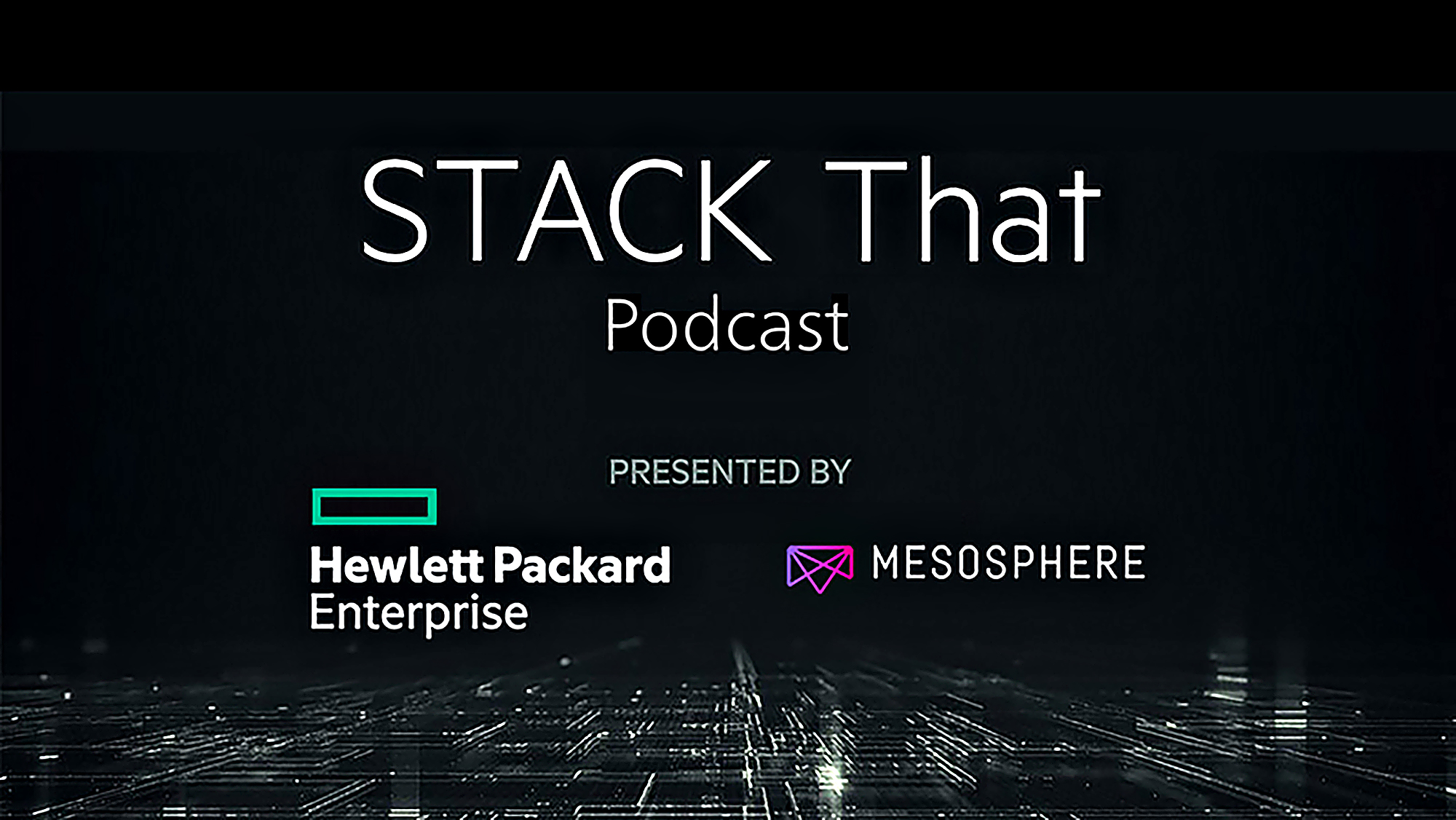HPE STACK That Podcast: How computing is changing medicine and helping map the human genome

5 min read
What if we could look at a patient's entire medical history, plus the data from their smartwatch, plus the records of 100 people most like them in the world to drive insights and predictions about their health?
This idea of prescribing for one—known as Precision Medicine—would provide hindsight analysis, insight into existing conditions and predictive analysis on future conditions based on a patient's current lifestyle. Precision medicine would allow doctors and medical staff to determine the best course of action and predict how to help patients down the road, or steer them away from potentially hazardous paths.

Current medical diagnostics are constrained by individuals being compared to the "average patient" and a brief analysis of surface symptoms. This could be greatly improved by introducing more data—specifically records of patients from around the world. By identifying a group of people a patient is most related to —based on climate, diagnoses and medicines— doctors can use this information to make quicker and better diagnoses, and potentially predict health outcomes.
The challenge? This process would be very data-intensive and concerns about patient data privacy would need to be addressed. The fact is that, currently, the bandwidth and technology infrastructure required is not in place to support this level of data-intensive analysis in real time. At best, a patient can be compared to others within the hospital they go to, and even that process would take an exceptional amount of time to compute and determine a recommendation.
Part of the reason is because processor technology—essentially—stopped getting better a while ago. Up until now, computers have always evolved to keep up with our increasing demands, but their fundamental design is still based on the same architecture that was put in place more than 60 years ago, and that architecture is starting to hit its limits.
Efficient Resource Utilization Enables Medical Big Data Projects
The challenge in computing has always been building enough memory to keep up with increasing compute requirements. Memory has always been the scarce resource. But HPE envisions a future where computers are designed to put the data at the core. Utilizing Memory-Driven Computing, HPE predicts that systems around the globe would be able to integrate patient data, anonymously, and allow medical professionals to access information from a distributed matrix of anonymized information in real-time.
Mesosphere makes it possible to build data-intensive medical applications that improve patient today. Enterprises and webscale companies can quickly deliver distributed and federated data-driven services on any datacenter or cloud infrastructure. Mesosphere DC/OS pools resources like CPU, memory, and storage across all nodes to help businesses build, deploy, and elastically scale modern applications and data services. DC/OS makes running containers, data services, and microservices easy across your own hardware and cloud instances.
In this week's episode of STACK That, we sat down with Othman Laraki from Color Genomics, a company that's making major strides into mapping the human genome and helping the medical world discover things like predispositions to disease.
"Healthcare is increasingly becoming a software and data problem," Laraki said. "Getting the data out is the easy part. What's hard is that there's a massive amount of data and biology is an incredibly complex world, so now there's this challenge and opportunity to bring to bear a lot of the tools that we all worked on building."
Learn more about Color Genomics and the world of data and machine learning in healthcare in this week's podcast below.
https://soundcloud.com/stackthat/episode-5-color-genomics
Listen and subscribe to the latest episodes of STACK That on our podcast content hub, or with your favorite podcast app:
iTunes | Google Play | SoundCloud | Stitcher | RSS
Guests
Othman Laraki, Chief Executive Officer and Co-founder
Othman Laraki is co-founder and CEO of Color. He spent several years at Google, where he worked on Google's performance infrastructure and client-side software, including the Google Chrome browser. Following Google, he co-founded MixerLabs, which was acquired by Twitter in 2009. At Twitter, Othman was the Vice President of Product, helping create the company's first revenue products and grow the user base from 50 to 200 million users. Othman holds degrees in computer science and management from Stanford University and the Massachusetts Institute of Technology. Othman is a long-time investor and advisor to leading companies such as Pinterest, AngelList, Slack, Instacart and others.
Hosts
Florian Leibert, Co-Founder & CEO at Mesosphere
Florian Leibert co-founded Mesosphere (now D2iQ)in 2013 and currently serves as CEO. Since 2013, The company makes Mesosphere DC/OS, which allows webscale and enterprise companies to quickly deliver containerized, data-intensive applications on any infrastructure. Florian is passionate about building IoT infrastructure and enjoys discussing the benefits of the modern application stack as well as how D2iQ customers are building world changing technology. He is also the main creator of Marathon, an orchestrator and scheduler that operates on top of the Mesos software. Florian Leibert drove fundraising efforts through four rounds of financing from prominent investors like Khosla Ventures and Andreessen Horowitz. In addition to his role at D2iQ, Florian Leibert serves as an investor with Away and Drift.
Prior to co-founding Mesosphere, Florian Leibert held engineering leadership positions at prominent internet sites, including Airbnb, Twitter, Ning, and Adknowledge. At age 16, he co-founded online marketplace Knaup Multimedia in Germany.
Byron Reese, CEO & Publisher at Gigaom and CEO at Knowingly
With 25 years as a successful tech entrepreneur, with multiple IPOs and exits along the way, Byron Reese is uniquely suited to comment on the transformative effect of technology on the workplace and on society at large.
As a successful serial entrepreneur and award-winning futurist, Byron balances two unique perspectives. As a futurist, he leads his audience to explore the unprecedented technological changes destined to trigger the dramatic transformation of society. And as an entrepreneur, he shares how to profit from this change while still meeting the practical realities of operating a business.
Speaking across the globe, Byron brings great enthusiasm and talent for deciphering our common destiny and unlocking business opportunities within it. Byron's keynotes and appearances include the PICNIC Festival in Amsterdam, SXSW, the TEDx Austin, Wolfram Data Summit, Spartina, and the IEEE Global Humanitarian Technology Conference, among others.
Byron is also the publisher of Gigaom. A role enhanced by 20 + years' experience building and running successful Internet and software companies. Of the five companies he either started or joined early, two went public, two were sold, and one resulted in a merger.








